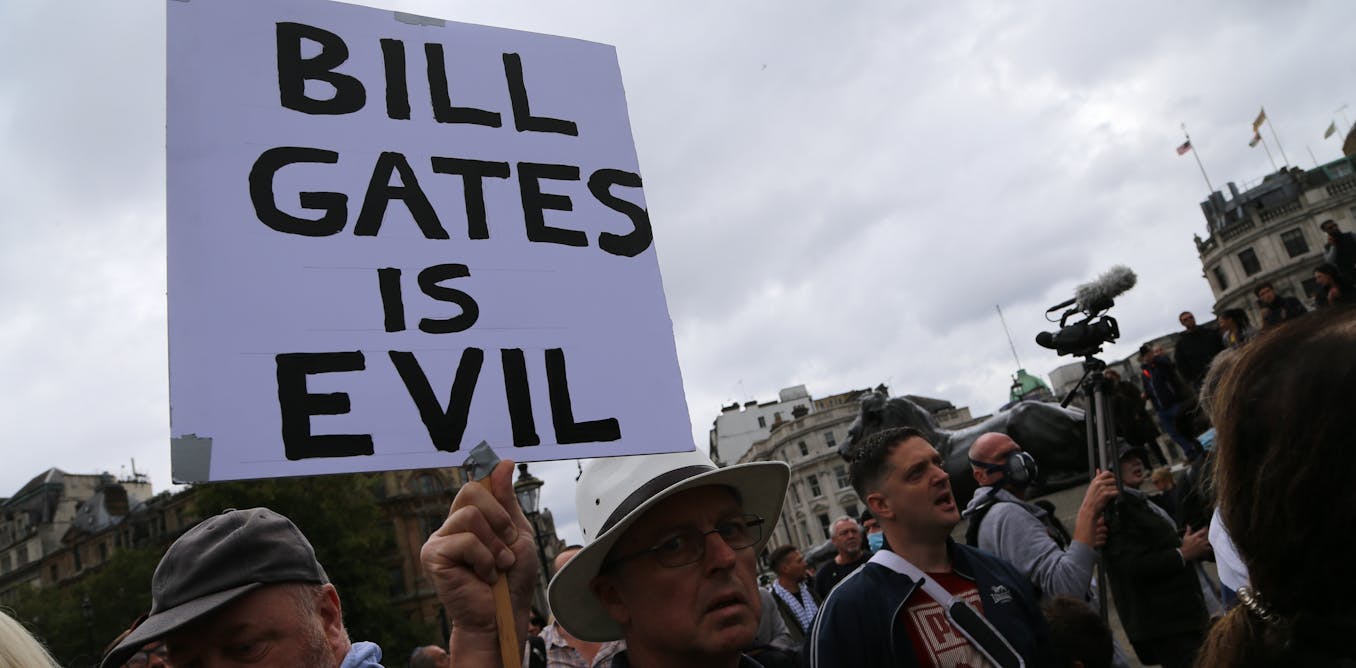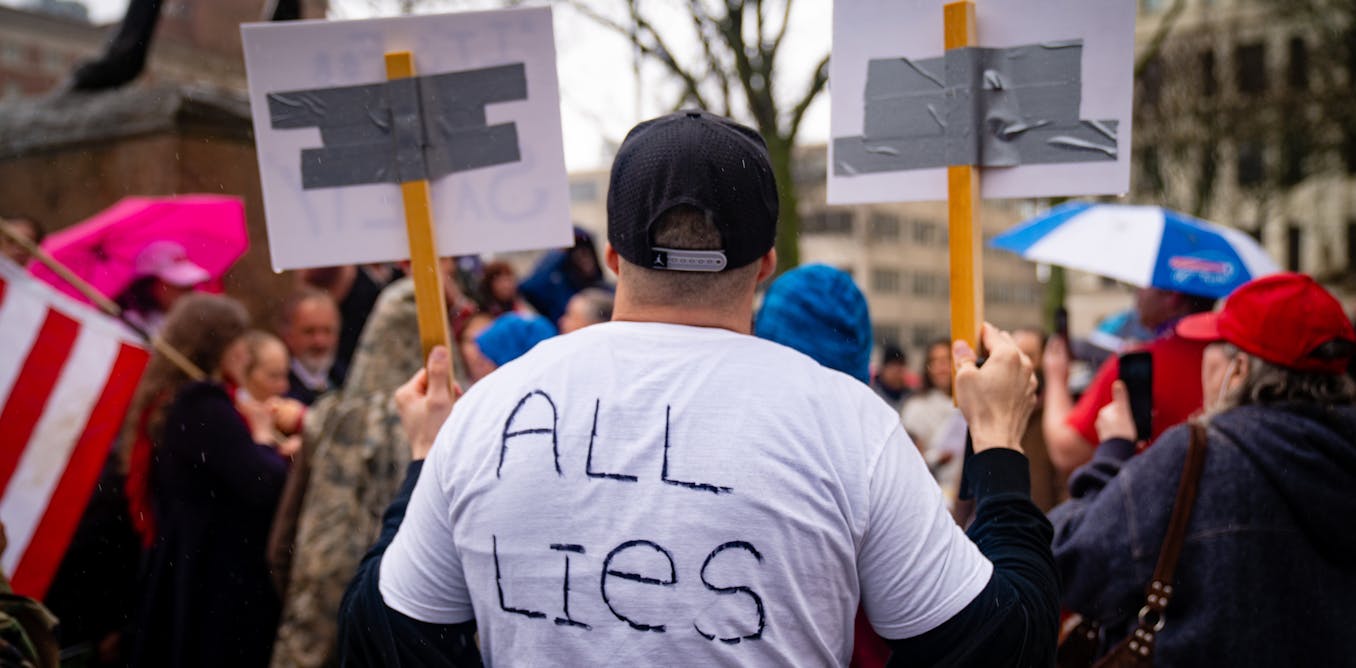Why some people don't trust science – and how to change their minds
People who are suspicious of science often assume they are understand it well – and that others agree with them.
Dec. 29, 2023 • ~7 min
How conspiracy theories can affect the communities they attack – new research
Study on antisemitic conspiracy theories shows they can make groups turn inwards for support and more fearful of others.
Dec. 4, 2023 • ~7 min
What is most likely going on in Area 51? A national security historian explains why you won't find aliens there
You’re not allowed to visit the part of Nevada known as Area 51. That’s because it’s a top-secret government facility. But the secrecy has to do with spy planes, not space aliens.
Aug. 14, 2023 • ~8 min
Why people tend to believe UFOs are extraterrestrial
While UFO videos might seem compelling, they’re rarely backed up with evidence. A sociologist explains why claims of alien life gain traction through both social and mass media every few years.
July 17, 2023 • ~9 min
What do astronomers say about Moon landing deniers? Batting down the conspiracy theory with an assist from the 1969 Miracle Mets
Some people incorrectly say the Moon landings didn’t happen. But the evidence – and logic – isn’t on their side.
July 17, 2023 • ~8 min
Starseeds: psychologists on why some people think they're aliens living on Earth
We’ve spent ages learning about the people who think they’ve come from another planet, so you don’t have to.
March 13, 2023 • ~7 min
/
5









